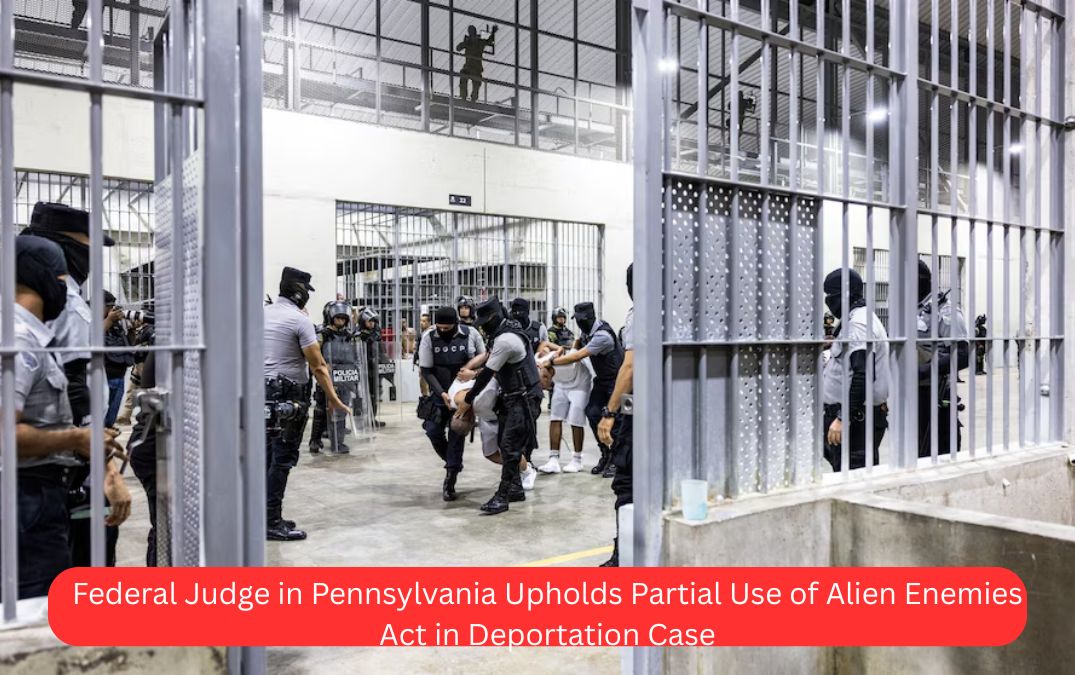A recent federal court decision in Pennsylvania has intensified pressure on the U.S. Supreme Court to clarify the legality of the Trump administration’s controversial use of the Alien Enemies Act of 1798. The ruling opens the door for limited deportation of Venezuelan migrants under a law that has sparked legal division across multiple states.
While courts in Colorado, New York, and Texas have rejected similar actions, this marks the first judicial approval of the law’s application in part—though with notable restrictions.
What Happened
On Tuesday, U.S. District Judge Stephanie Haines ruled that the Trump administration could invoke the Alien Enemies Act to deport certain Venezuelan nationals.
The ruling pertains only to the Western District of Pennsylvania and contradicts prior decisions from other federal judges who found the act’s use by the administration to be outside its legal scope.
Key Details
The Alien Enemies Act, enacted in 1798, allows the U.S. government to deport nationals from hostile foreign nations during wartime or invasion.
The Trump administration has argued that the Venezuelan gang Tren de Aragua is linked to the Venezuelan government and constitutes a threat equivalent to a foreign incursion. The administration designated the group as a foreign terrorist organization earlier this year.
Judge Haines’ decision did not fully endorse the administration’s view. She declined to define migration as a “predatory incursion” but interpreted the law to apply to acts by foreign terrorist organizations—not strictly military invasions.
Over 100 Venezuelan nationals accused of gang affiliations have reportedly been deported to El Salvador’s Terrorism Confinement Center.
Reactions or Statements
Aaron Reichlin-Melnick, senior fellow at the American Immigration Council, criticized the ruling as “exceptionally weak” and said it will likely be overturned by the 3rd Circuit Court of Appeals.
“The decision applies only to Western Pennsylvania and will probably face a stay,” he stated. “But it adds urgency for the Supreme Court to settle the matter.”
The ACLU has also urged the high court to intervene and determine the legality of using the centuries-old law in today’s immigration context.
Investigation or What’s Next
Judge Haines ordered the federal government to provide more transparency and time to migrants facing removal.
Instead of the 12–24 hours proposed by the administration, deportees must now receive 21 days’ notice in both English and Spanish.
An appeal is expected, and many legal experts believe the Supreme Court may take up the case before the term ends to resolve the constitutional debate once and for all.
FAQs
What is the Alien Enemies Act?
A law from 1798 that allows the U.S. to detain or deport nationals of enemy nations during declared wars or invasions.
Why is this law being used now?
The Trump administration argues that Tren de Aragua, a gang with alleged Venezuelan government ties, poses a national threat akin to an invasion.
What did the Pennsylvania judge decide?
She allowed partial use of the act but rejected the idea that migration alone constitutes a predatory incursion.
Does this ruling affect the entire U.S.?
No, it applies only to the Western District of Pennsylvania and may be overturned on appeal.
Will the Supreme Court intervene?
Legal experts and organizations like the ACLU are urging the Supreme Court to resolve the conflicting rulings nationwide.
Summary / Final Takeaway
Judge Stephanie Haines’ ruling marks a pivotal moment in the legal battle over the Alien Enemies Act and immigration enforcement.
While limited in scope, the decision deepens the divide among federal courts and significantly raises the stakes for the Supreme Court to deliver a definitive ruling.












